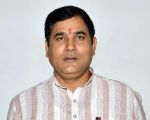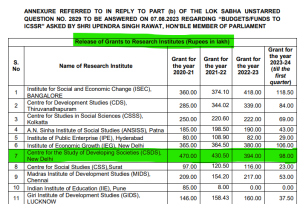
Government Funding: A Taxpayer-Funded Enterprise
CSDS receives substantial financial support from the Indian Council of Social Science Research (ICSSR), an autonomous body under the Ministry of Education. On August 7, 2023, the Ministry revealed in Parliament that CSDS had been allocated ₹13 crore over three years, with 67% of its funding coming from the Central Government. This significant taxpayer contribution raises expectations of accountability and transparency, particularly when CSDS conducts high-profile studies like the National Election Studies (NES) and State of Democracy in South Asia surveys. However, the institute’s refusal to make its raw data publicly accessible has sparked accusations of hypocrisy, especially when it demands transparency from institutions like the Election Commission of India (ECI).
The reliance on government funds places CSDS under scrutiny to ensure its research serves the public interest rather than partisan agendas. Critics, including social commentator Dilip Mandal, argue that CSDS’s practices betray this trust, using public money to produce divisive narratives while shielding its methodologies from independent verification.
The Alleged Congress Connection: From Rajni Kothari to Sanjay Kumar
CSDS’s history is intertwined with figures who have openly or implicitly aligned with the Congress party. Its founder, Rajni Kothari, a prominent political scientist, was known for his work on Indian politics, which some critics argue leaned toward Congress ideologies during the party’s dominance in the 1960s and 1970s. Over the decades, this perceived alignment continued with researchers like Yogendra Yadav, Abhay Kumar Dubey, and Sanjay Kumar, who have been accused of tailoring their analyses to favor Congress narratives.

Sanjay Kumar, the current co-director of CSDS’s Lokniti programme, has faced particular scrutiny. On August 17, 2025, Kumar posted data on X claiming significant voter discrepancies in Maharashtra’s 2024 Assembly elections compared to the Lok Sabha polls. He alleged a 47.38% voter surge in Nashik West and a 43.08% increase in Hingna, alongside sharp declines in Ramtek and Deolali. These claims, tagged with Lokniti-CSDS and Yogendra Yadav, were swiftly amplified by Congress leaders, including Rahul Gandhi and Pawan Khera, to fuel allegations of “vote chori” (vote theft) against the ECI. However, Kumar retracted the post on August 19, admitting a “misread row” by his data team, triggering a firestorm of criticism from the Bharatiya Janata Party (BJP).
The BJP, led by IT Cell chief Amit Malviya, accused Kumar of “confirmation bias” and feeding Congress’s “fake narrative.” The timing of Kumar’s post, coinciding with Rahul Gandhi’s Bihar campaign launch on August 17, 2025, and the use of hashtags like “vote chori” aligned with Congress’s rhetoric, further fueled suspicions of a coordinated effort. Critics argue that this incident is not isolated but part of a pattern where CSDS’s data is selectively used to bolster Congress’s electoral strategies, often at the cost of public trust in institutions like the ECI.
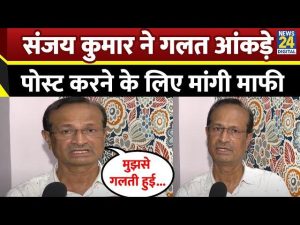
Data Transparency: A Glaring Double Standard
One of the most damning criticisms against CSDS is its lack of transparency regarding raw data. While the institute demands transparency from the ECI, it restricts access to its own survey data, making it available only for a steep fee and in limited form. This practice disadvantages millions of Indian students and researchers who rely on public data for academic work. Dilip Mandal has called this a “serious injustice,” arguing that an institution funded by taxpayer money should not gatekeep data that could advance social science research.
The refusal to share raw data raises questions about the integrity of CSDS’s findings. Without access to the underlying datasets, independent researchers cannot verify the institute’s claims, such as its controversial 2024 Social and Political Barometer Prepoll Study. This survey claimed that 56.9% of Indians support including Muslims in Scheduled Caste (SC) reservations, a finding that critics argue could destabilize the constitutional framework protecting SC communities. Mandal and others have questioned the methodology, pointing out that the survey’s question—whether SC reservations should be limited to Hindus—ignores the existing inclusion of Sikhs and Buddhists, suggesting either incompetence or deliberate bias.
The absence of raw data also fuels suspicions that CSDS manipulates its findings to push divisive narratives. For instance, its surveys often categorize Hindu voters by caste while treating Muslims as a monolithic bloc, ignoring internal divisions like Ashraf, Ajlaf, and Arzal. This selective framing, critics argue, reinforces caste divisions among Hindus while presenting Muslims as a unified voting group, aligning with Congress’s electoral strategy of consolidating minority votes.
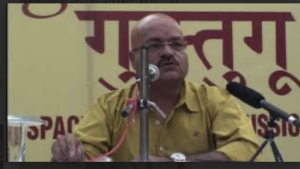
Dividing India: The Caste and Religion Narrative
CSDS’s surveys, particularly those conducted under the Lokniti programme, have been accused of fostering societal divisions by focusing on caste and religion-based voting patterns. Posts on X by Dilip Mandal highlight how CSDS’s data, often funded by foreign entities like the Ford Foundation, is used to produce analyses claiming that specific castes—like Jatavs, Pasas, or Yadavs—vote differently, fostering mistrust among communities. These analyses, widely disseminated through media outlets, academic papers, and political discourse, create a narrative of perpetual caste and religious rivalry.
The 2024 survey on SC reservations is a case in point. By suggesting that a majority of Indians support extending SC benefits to Muslims, CSDS has been accused of undermining the constitutional safeguards established by Dr. B.R. Ambedkar for historically oppressed Hindu, Sikh, and Buddhist communities. Critics argue that this survey, conducted without transparent data, could influence policy or judicial decisions, potentially eroding the rights of SC communities. The timing of such questions, which have never been major electoral issues, raises suspicions about CSDS’s intent to shape political narratives favorable to certain parties.
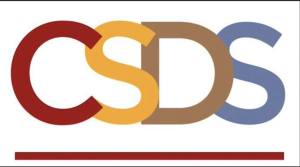
Foreign Funding and International Agendas
Beyond government funding, CSDS has historically received support from international organizations like the Ford Foundation, which critics allege use such institutes to influence India’s social and political landscape. Mandal argues that foreign funding aims to fragment Indian society by amplifying caste, religious, and other divisive issues, especially as India emerges as a global power. The Ford Foundation’s involvement in funding surveys that dissect Indian voting behavior by caste and religion is seen as part of a broader strategy to weaken national cohesion.
ICSSR’s Response: A Call for Accountability
The ICSSR’s recent actions signal growing frustration with CSDS’s conduct. On August 19, 2025, the council announced a show-cause notice to CSDS for “data manipulation” and attempting to “undermine the sanctity of the Election Commission of India.” This followed Sanjay Kumar’s retracted voter discrepancy claims, which the ICSSR deemed a violation of its Grant-in-Aid rules. The Nagpur Police also filed an FIR against Kumar under multiple sections of the Bharatiya Nyaya Sanhita for spreading false information. These developments suggest that CSDS’s practices are now under intense scrutiny, with calls to defund the institute or force it to release its raw data for public verification.
A Breach of Trust
CSDS, an institution meant to advance social science research, stands accused of betraying public trust through opaque data practices, alleged political bias, and divisive surveys. Its reliance on government funds while refusing to share raw data, coupled with its history of aligning with Congress narratives, paints a troubling picture. The institute’s role in amplifying caste and religious divisions, often with questionable methodologies, threatens India’s social cohesion and democratic institutions. As the ICSSR and ECI take steps to hold CSDS accountable, the public deserves answers: Why does a taxpayer-funded institute hide its data? And whose interests does it truly serve? Until these questions are addressed, CSDS’s legacy risks being one of controversy rather than credibility.



